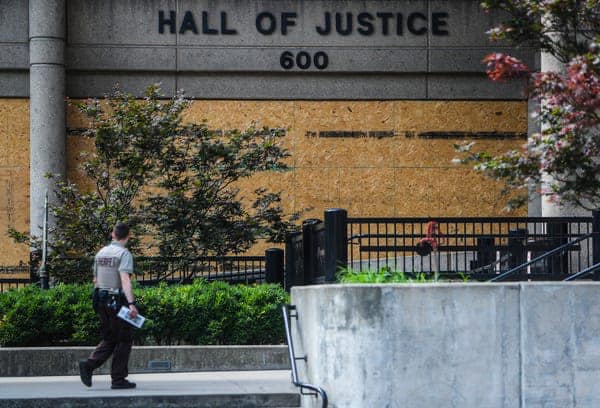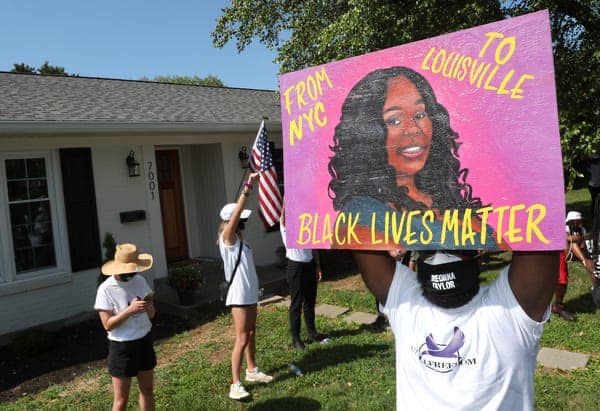

The Courier Journal experienced both victory and defeat in two unrelated open government challenges last week.
Neither result was unexpected.
In an important victory, the Jefferson Circuit Court issued an injunction to prevent any future secret telephone meetings between Louisville Mayor Greg Fischer and a quorum of the members of the Louisville Metro Council.
https://www.courier-journal.com/story/news/politics/metro-government/20…
It came as little surprise that Judge Audra Eckerle found these "unrecorded and non-transparent" meetings to "discuss public business" illegal.
No one bought the council's specious defense that its secret telephone calls with the mayor did not concern public business.
The meetings were textbook violations of open meetings laws. These laws are aimed at enabling the public "to be informed, object or influence any decision that has been made, or is continuing to be made, in these unprecedented times, where we are suffering both a global pandemic and civil unrest in the streets simultaneously."
Future meetings between the mayor and council must be conducted under the laws governing all meetings of a quorum of the members of a public agency at which public business is discussed or action is taken.
https://apps.legislature.ky.gov/law/statutes/statute.aspx?id=48229
If the mayor wishes to communicate with the council on public business — a term expansively defined to ensure that the public's right of access is not devalued by exclusion — he'll have to make time in his busy schedule to pencil the council's regular meetings in or suggest that President David James, or a majority of council members, call a properly noticed special meeting.
The Courier suffered an equally expected defeat at the hands of Attorney General Daniel Cameron in a series of open records appeals.
https://www.courier-journal.com/story/news/politics/metro-government/20…
In May, The Courier elected to bypass the Attorney General and appeal Louisville Metro Police Department's denial of a request for the Breonna Taylor investigative file directly to Jefferson Circuit Court. Sometime earlier, The Courier appealed LMPD's denial of its request for autopsy records, radio communications, and 911 calls in the Taylor case to the Attorney General.
https://www.courier-journal.com/story/news/politics/metro-government/20…
https://www.courier-journal.com/story/news/2020/05/27/breonna-taylor-sh…
These appeals to the Attorney General came as a surprise.
Never has the temptation to blur the lines of special prosecutor and open records adjudicator — or the impetus to massage well-established legal interpretation to arrive at a foregone conclusion — been greater than in these open records appeals.
Cameron is not the first attorney general to subordinate his role as an independent and objective open records adjudicator to his role as chief law enforcement officer for the state.
Nor is he the first to ignore the holding in City of Fort Thomas v Cincinnati Enquirer, requiring that denial of access to a record —or categories of records — in an open law enforcement investigative file be accompanied by proof that "because of the record's content, its release poses a concrete risk of harm to the agency in the prospective action."
https://caselaw.findlaw.com/ky-supreme-court/1643297.html
Past attorneys general, and now —apparently — Cameron all but ignore this 2013 Kentucky Supreme Court ruling interpreting KRS 61.868(1)(h) and overruling a 1992 opinion that read the requirement of a showing of harm from premature disclosure out of existence.
https://apps.legislature.ky.gov/law/statutes/statute.aspx?id=48230
They focus, instead, on the lesser known statute found in KRS Chapter 17 that authorizes law enforcement agencies to withhold intelligence and investigative files "to be used in a prospective law enforcement action."
https://apps.legislature.ky.gov/law/statutes/statute.aspx?id=46877
Both statutes mandate disclosure in the absence of proof of specific harm and both express the legislative resolve that they "not be used to delay or impede the exercise of rights granted by the law.
But for Cameron, and his last two predecessors, that specific harm consists of nothing more than a showing that the investigation is open. This effectively ignores the Supreme Court's ruling in City of Fort Thomas.
In other words, these attorneys general treat or treated the two statutes as contradictory rather than complimentary.
If insufficient proof of harm was presented under 61.878(1)(h), they simply plugged in 17.150(2) to affirm denial of access to investigative records.
Try as we might, the merit open records staff was unsuccessful in convincing them that these laws were intended to be harmonized.
As I wrote to Courier's editor, Rick Green, who expressed deep frustration with the Attorney General's open records decisions in a Friday Tweet:
"Only the CJ and it's attorneys have seen the analysis [in the attorney general's decision]. But if it turns on KRS 17.150(2) rather than 61.878(1)(h), there is an opportunity here to send a strong message to this and future attorneys general that 17.150(2) does not extend protection to all records just because a case is open.
"While it is unfortunate that the CJ must bear the cost of litigating this issue, it is reassuring to know that the public's interest will be represented by the state's most persuasive open government advocates. The OAG should not be permitted to perpetuate this vacuous interpretation.
"And, if justice prevails, the CJ will be awarded attorneys' fees and penalties. The current situation —which mirrors the past — is simply intolerable."
https://twitter.com/kentuckyrag/status/1288910374960607234?s=10
While the Courier is no doubt busting this year's litigation budget on open government litigation involving mostly settled legal issues, this is a critical opportunity for judicial recognition of an interpretation of the dreaded law enforcement exception(s) that implements the express legislative intent and that has been obvious to open government practitioners — albeit not politicians — for years.



